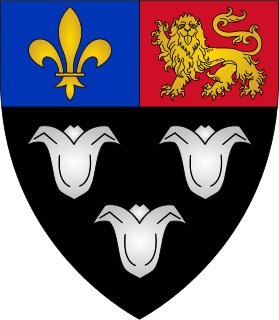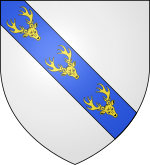
Earl of Derby is a title in the Peerage of England. The title was first adopted by Robert de Ferrers, 1st Earl of Derby, under a creation of 1139. It continued with the Ferrers family until the 6th Earl forfeited his property toward the end of the reign of Henry III and died in 1279. Most of the Ferrers property and, by a creation in 1337, the Derby title, were then held by the family of Henry III. The title merged in the Crown upon Henry IV's accession to the throne.

Edward Smith-Stanley, 13th Earl of Derby, KG, of Knowsley Hall in Lancashire, was a politician, peer, landowner, builder, farmer, art collector, and naturalist. He was the patron of the writer Edward Lear.

Earl of Lytton, in the County of Derby, is a title in the Peerage of the United Kingdom. It was created in 1880 for the diplomat and poet Robert Bulwer-Lytton, 2nd Baron Lytton. He was Viceroy of India from 1876 to 1880 and British Ambassador to France from 1887 to 1891. He was made Viscount Knebworth, of Knebworth in the County of Hertford, at the same time he was given the earldom, also in the Peerage of the United Kingdom.

James Edward Hubert Gascoyne-Cecil, 4th Marquess of Salisbury,, known as Viscount Cranborne from 1868 to 1903, was a British statesman.
Andrew Douglas Alexander Thomas Bruce, 11th Earl of Elgin and 15th Earl of Kincardine, styled Lord Bruce before 1968, is a Scottish peer.

Orlando George Charles Bridgeman, 3rd Earl of Bradford, PC, DL, styled Viscount Newport between 1825 and 1865, was a British courtier and Conservative politician. In a ministerial career spanning over thirty years, he notably served as Lord Chamberlain of the Household between 1866 and 1868 and as Master of the Horse between 1874 and 1880 and again between 1885 and 1886.
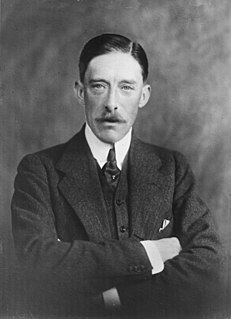
Henry George Charles Lascelles, 6th Earl of Harewood, styled The Honourable Henry Lascelles before 1892 and Viscount Lascelles between 1892 and 1929, was a British soldier, peer and a Yorkshire landowner. He was the husband of Mary, Princess Royal, and through her the son-in-law of King George V and Queen Mary and a brother-in-law to Edward VIII and George VI.

Gavin Campbell, 1st Marquess of Breadalbane, styled Lord Glenorchy between 1862 and 1871 and known as The Earl of Breadalbane and Holland between 1871 and 1885, was a Scottish nobleman and Liberal politician.

Adelbert Wellington Brownlow-Cust, 3rd Earl Brownlow, was a British soldier, courtier and Conservative politician.

Edward St Vincent Digby, 9th Baron Digby, also 3rd Baron Digby in the Peerage of Great Britain, was a British peer.

Edward Stanley, 11th Earl of Derby, known as Sir Edward Stanley, 5th Baronet, from 1714 to 1736, was a British nobleman, peer, and politician.

James Stanley, 10th Earl of Derby, styled The Honourable until 1702, was a British peer and politician.
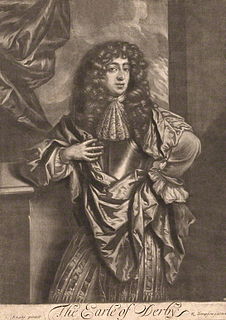
William Richard George Stanley, 9th Earl of Derby, styled Lord Strange from 1655 to 1672, was an English peer and politician.

Charles James Stanley Howard, 10th Earl of Carlisle, DL, styled Viscount Morpeth from 1889 to 1911, was a British soldier, peer, and Liberal Unionist politician.

Arnold Allan Cecil Keppel, 8th Earl of Albemarle,, styled Viscount Bury from 1891 to 1894, was a British soldier, courtier and Conservative politician.
George Charles Patrick Bingham, 6th Earl of Lucan MC, known as Lord Bingham from 1914 to 1949, was an Irish peer, British soldier and Labour politician.

Lt.-Col. David Stanley William Ogilvy, 11th Earl of Airlie was a Scottish peer.
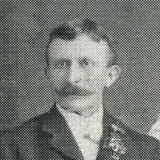
The Rt. Hon. Edward Agar Horatio Nelson, 5th Earl Nelson, was a British peer, inheriting the earldom in September 1947 from his older brother, The 4th Earl Nelson.

Edmund Hornby (1773-1857) of Dalton Hall near Burton, Westmorland, was a Member of Parliament for Preston, Lancashire, from 1812-1826. He was a nephew and son-in-law of Edward Smith-Stanley, 13th Earl of Derby (1775-1851).



